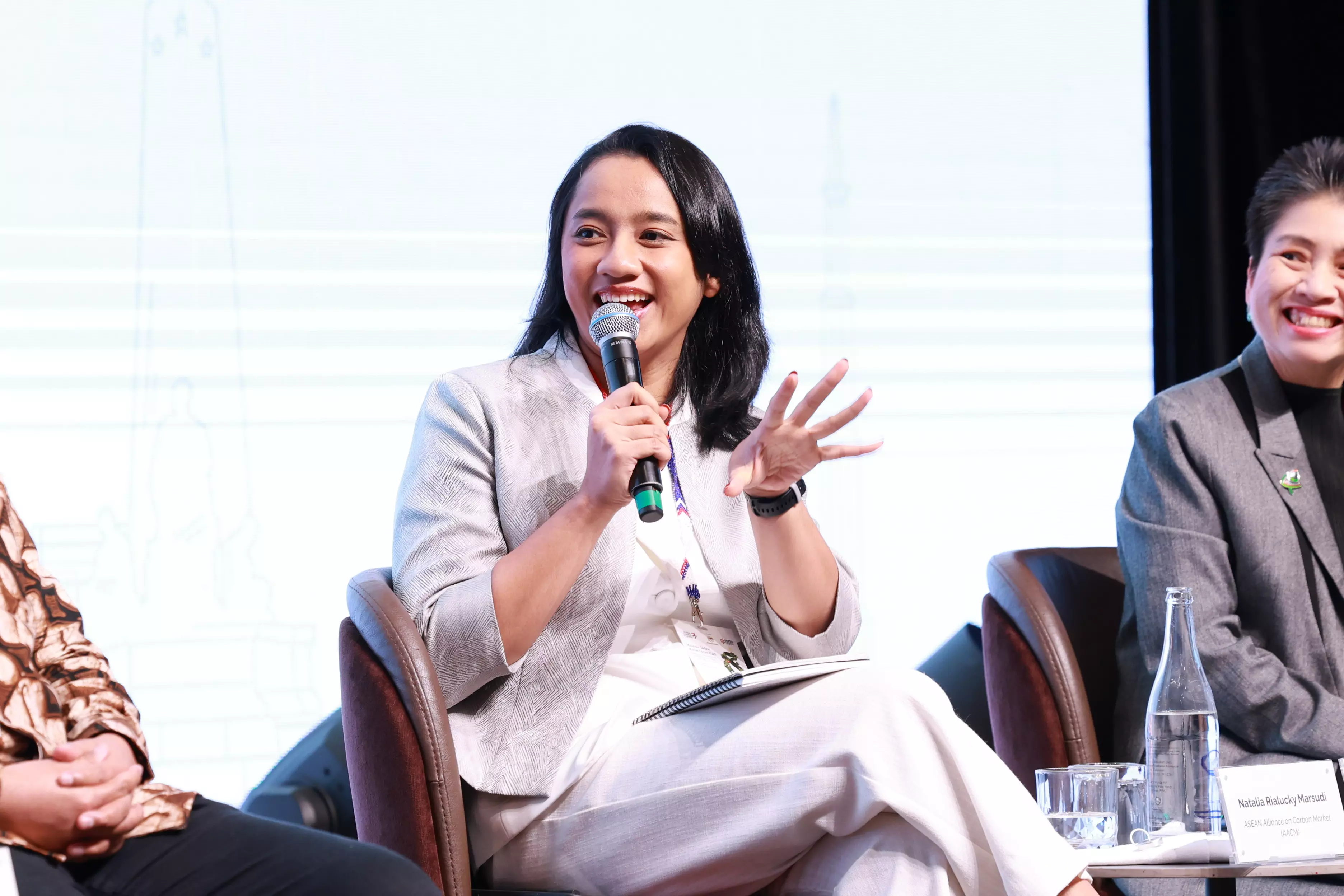Empowering Regional Climate Action - Insights from Malaysia Carbon Market Forum 2025
News
On 15 October 2025, Kuala Lumpur hosted the 3rd Malaysia Carbon Market Forum (MCMF 2025) at W Hotel, organized by Bursa Carbon Exchange (BCX) as part of IGEM 2025 (International Greentech & Eco Products Exhibition & Conference Malaysia).
This year’s theme, “Empowering Regional Climate Actions through the ASEAN Common Carbon Framework,”highlighted Malaysia’s leadership in driving carbon trading and net zero emissions efforts across Southeast Asia.
The forum gathered more than 460 in-person attendees and 100 virtual participants, including government officials, carbon market practitioners, project developers, and private sector leaders all united in accelerating the region’s transition toward a carbon neutral and zero emission future.
Key Highlights

-
Regional Collaboration in Carbon Trading
MCMF 2025 featured a strong regional lineup, including Dr. Renard Siew (President, Malaysia Carbon Market Association), Dr. Riza Suarga (Chairman, Indonesia Carbon Trade Association), Gloyta Nathalang (Chair, Thai Carbon Markets Club), and Natalia Rialucky (Deputy Chair, ASEAN Alliance on Carbon Markets).
The panel explored how the ASEAN Common Carbon Framework (ACCF) could harmonize regional carbon trading systems and enable more transparent, cross-border exchange of carbon credits. -
Public–Private Partnerships for Net Zero
Two Memoranda of Collaboration (MoCs) were signed,between BCX and the Malaysia Forest Fund (MFF), and between BCX and Sarawak Energy.
These partnerships strengthen the ecosystem for high-quality carbon projects, particularly those that deliver measurable carbon offsets through reforestation and renewable energy initiatives, both crucial pathways toward achieving net zero targets. -
Building Trust through High-Integrity Carbon Credits
Speakers from across ASEAN emphasized that carbon credit integrity is key to attracting global buyers.
Ensuring robust verification, transparent carbon offset mechanisms, and alignment with global standards such as Verra, Gold Standard, and Plan Vivo will be essential for the region’s credibility in carbon trading and carbon project development. -
Digital Innovation and Transparency
New digital solutions, including blockchain-based registries and tokenized carbon credits were introduced as tools to improve traceability, liquidity, and accountability in carbon trading.
These innovations are expected to help companies manage their carbon Oofset portfolios more efficiently and enhance confidence in the voluntary carbon market.
Key Takeaways
-
Regional Integration Is Accelerating
Under the ASEAN Common Carbon Framework, member countries are aligning their carbon trading and carbon credit systems to support a unified market.
However, greater market literacy and transparent policies are needed to help more businesses and communities participate in carbon offset programs and move toward net zero emissions. -
Integrity and Standardization Are Essential
The success of ASEAN’s carbon market depends on credible governance, verified carbon projects, and reliable MRV (Monitoring, Reporting, and Verification) systems.
Stronger alignment with international frameworks will ensure that every carbon credit contributes to measurable progress toward zero rmission and carbon neutral goals. -
Collaboration Is the Catalyst
Governments, carbon exchanges, and the private sector must collaborate to scale the impact of carbon projects and ensure access to carbon trading opportunities that benefit both people and the planet.
The MoCs signed at MCMF 2025 represent a significant step toward a region-wide net zero partnership ecosystem. -
ASEAN’s Role in Global Carbon Markets
Southeast Asia is emerging as both a major supplier of nature-based carbon credits and a strategic hub for carbon trading.
Through coordinated frameworks like the ACCF, ASEAN is positioning itself as a bridge between global demand and local carbon project development, advancing regional and global net zero emissions ambitions.
Conclusion
The Malaysia Carbon Market Forum 2025 reaffirmed that the ASEAN carbon market is entering a new era, one focused on collaboration, credibility, and innovation.
By combining regional integration, transparent carbon trading systems, and high-integrity carbon projects, Southeast Asia is setting a strong foundation for achieving net zero and carbon neutral economies.
As discussions at MCMF 2025 made clear, the time to act is now. The path to a zero emission future begins with building trust, scaling cooperation, and ensuring every carbon credit contributes meaningfully to global climate goals.
The conversations from MCMF 2025 echo a shared regional mission: to scale up carbon trading with transparency and impact.
Fairatmos continues to be part of this journey,empowering credible carbon projects and driving the path to zero emission economies.

